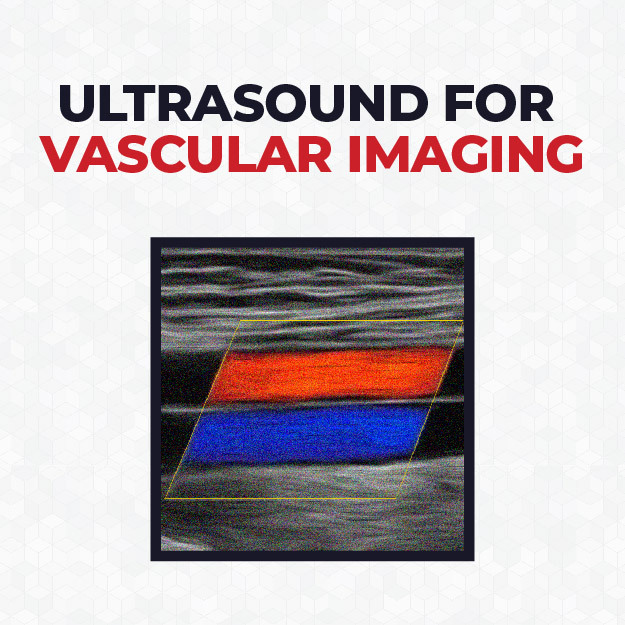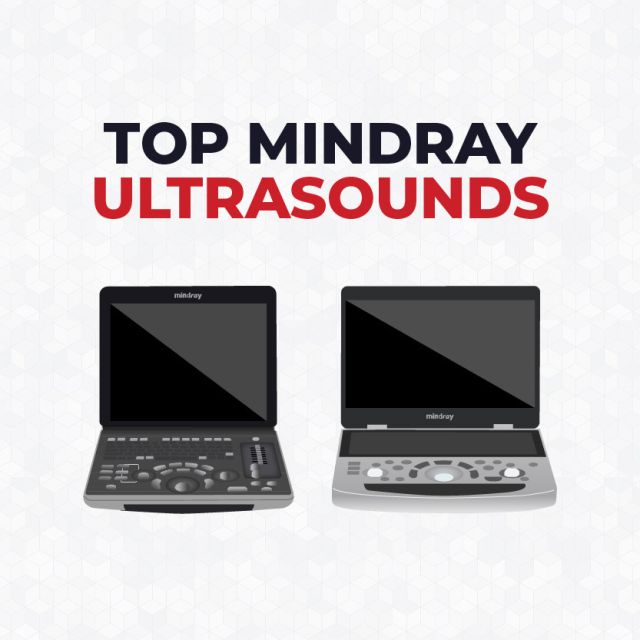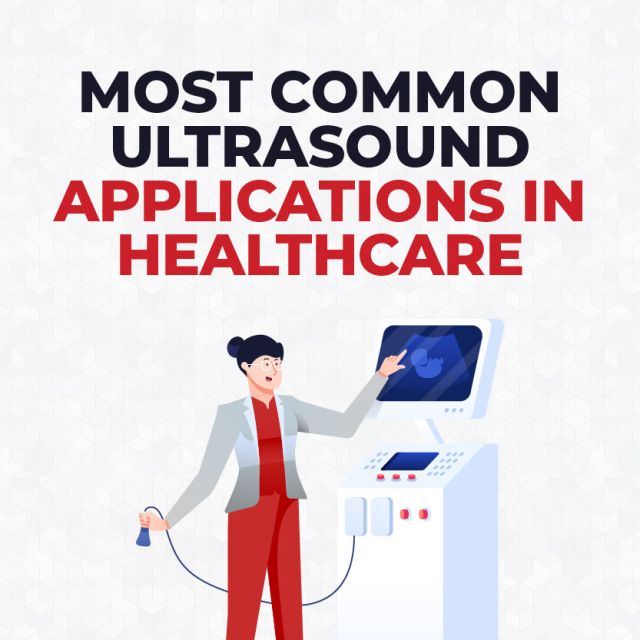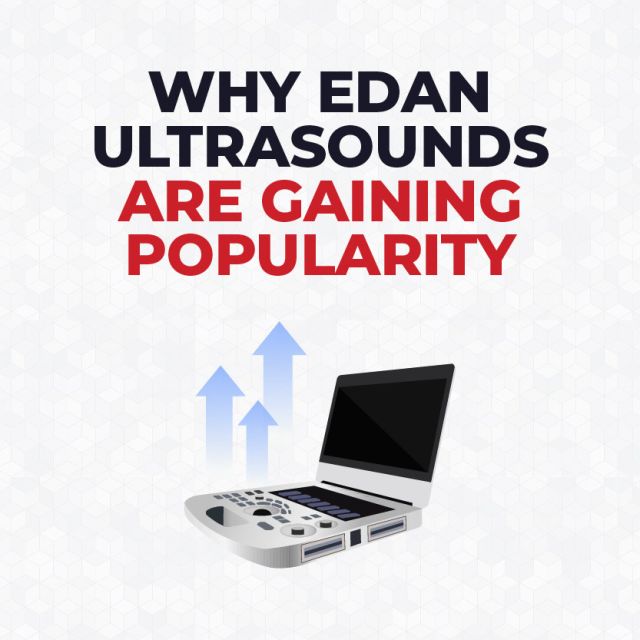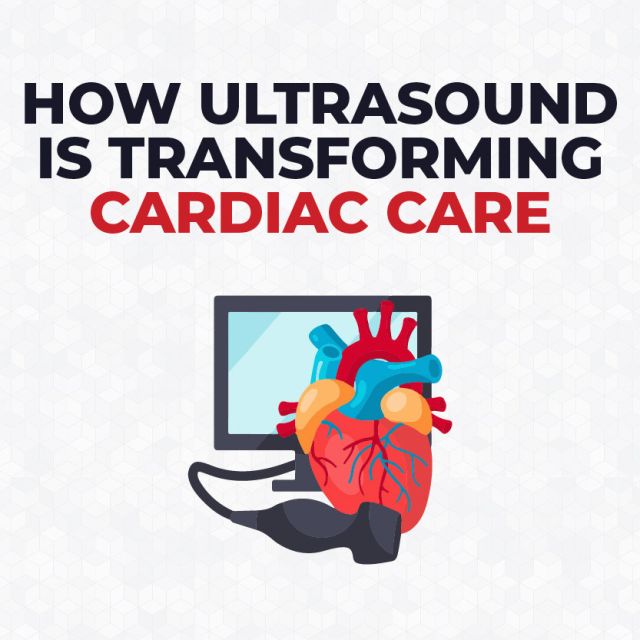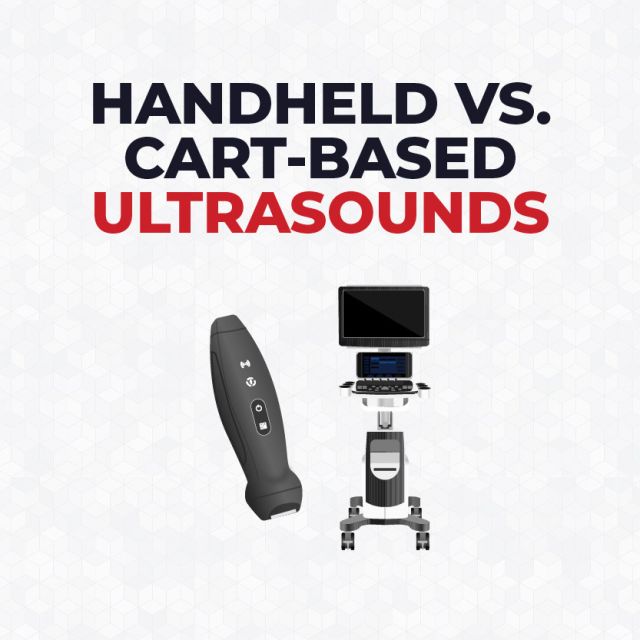Handheld vs. Cart-Based Ultrasound Machines
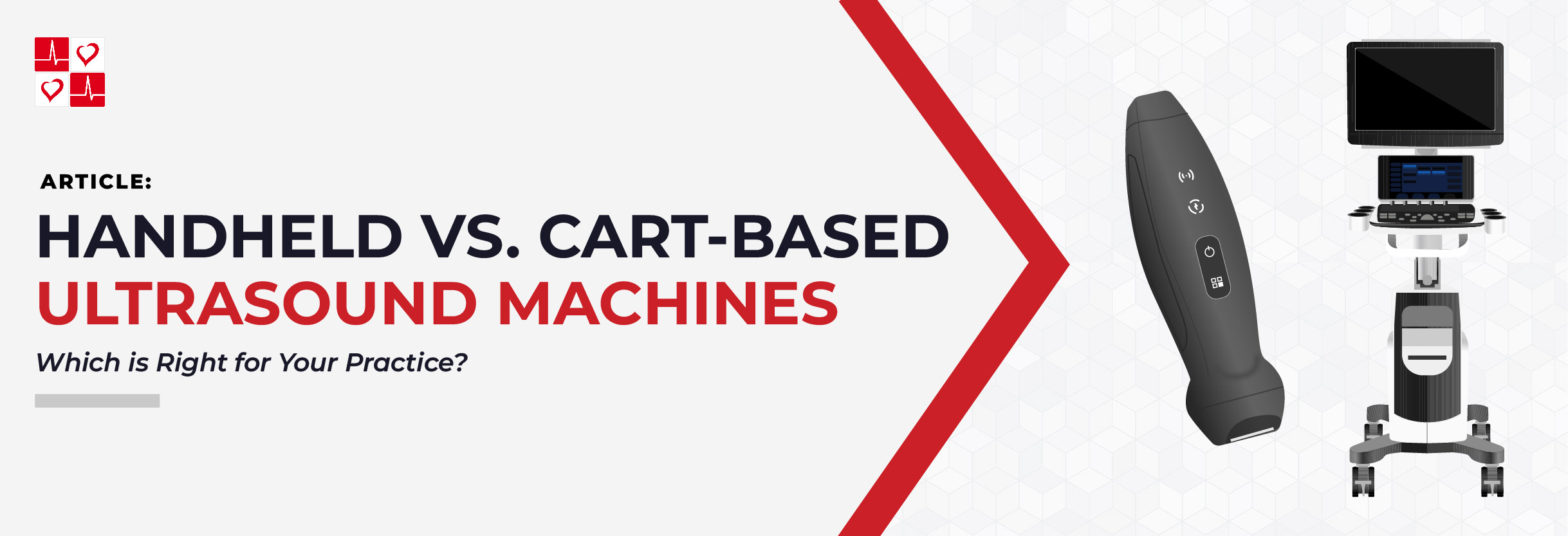
Introduction
With the rise of handheld ultrasound devices alongside cart-based ultrasound systems, clinicians now have more choices than ever. Whether you are performing point-of-care diagnostics or conducting prenatal exams, the right ultrasound machine can make a big difference for your practice.
Which option is best for your practice, handheld or cart-based ultrasound machines? In this article, we’ll break down the advantages and disadvantages of both types of machines to help you decide which is right for your clinical needs.
Handheld Ultrasound Machines
Handheld ultrasound machines consist of a wireless transducer that connects to a smartphone or tablet. These compact ultrasound machines have become popular in point-of-care settings and smaller clinics, where speed and mobility are key. If your primary focus is quick diagnostics, a handheld ultrasound offers unmatched convenience and accessibility.
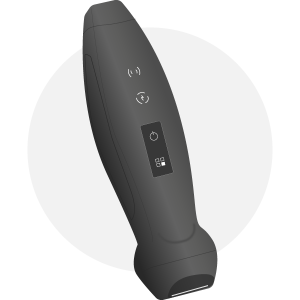
Advantages of Handheld Ultrasound Machines
- Portability and Convenience: The primary advantage of handheld ultrasound devices is their portability. Clinicians can easily carry these devices from one room to another, making them ideal for environments like the ER or ICU.
- Rapid Point-of-Care Diagnostics: For quick diagnostics, handheld ultrasound machines are unmatched. Whether you’re performing a FAST exam in trauma settings, or conducting a quick cardiac assessment, these devices can provide real-time results.
- Lower Cost: Handheld devices are more affordable than cart-based ultrasound machines, typically costing under $5,000.
Disadvantages of Handheld Ultrasound Machines
- Limited Image Quality: While handheld ultrasound machines offer great image quality, they can’t yet match the image quality of a full-sized cart-based machine.
- Fewer Features: Handheld ultrasound machines are generally more limited in features like 3D imaging. A cart-based ultrasound machine is more suited to perform in-depth vascular assessments or capture intricate fetal images.
Cart Based Ultrasound Machines
A cart-based ultrasound machine consists of a large display, control panel, keyboard and multiple transducer ports. Additionally, they typically mounted on a wheeled cart for mobility in hospitals. For detailed diagnostic work in specialties like radiology, obstetrics, and cardiology, cart-based systems offer comprehensive care.
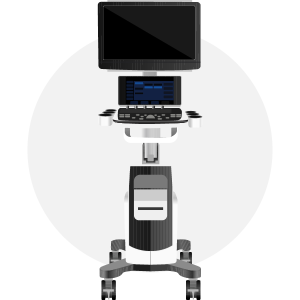
Advantages of Cart-Based Ultrasound Machines
- Superior Image Quality: Cart-based ultrasound machines offer superior imaging quality compared to handheld ultrasound machines. These systems are essential for detailed imaging applications such as fetal development, cardiac assessments, and abdominal scans.
- Advanced Features: Cart-based ultrasound systems offer advanced features like doppler imaging and 3D/4D capabilities. These features are crucial for a variety of diagnostic tasks, from assessing blood flow to musculoskeletal assessments.
- Robust for High-Volume Clinics: For high-volume clinics, cart-based ultrasound machines are more robust and reliable. Additionally, their large storage capacity and broad range of transducers allows versatility for different applications.
Disadvantages of Cart-Based Ultrasound Machines
- Lack of Portability: While they are often equipped with wheels, cart-based systems are still less portable than handheld ultrasound machines. They also require the most space and set up time, which may not be ideal for some situations.
- High Cost: Cart-based ultrasound machines are significantly more expensive compared to handheld ultrasound machines, typically over $20,000. While the investment is often justified by the superior image quality and advanced features, smaller clinics may find it harder to justify the expense.
Which One Should Choose?
The choice between a handheld and a cart-based ultrasound machine depends on the needs of your practice.
- Large Clinics and Specialized Imaging: If your practice requires high-resolution imaging and high patient volumes, a cart-based ultrasound machine is the best option. You’ll benefit from the advanced features, superior image quality, and durability.
- Small Clinics, Point-of-Care, or Mobile Use: If you’re in a smaller clinic or need a portable solution for point-of-care or emergency settings, handheld ultrasounds are a great choice. They offer enough functionality for quick assessments and basic diagnostics without the bulk or cost of a full-sized machine.
Closing
Whether you purchase a handheld or cart-based ultrasound machine depends on your specific needs. Cart-based ultrasound system are best for practices requiring detailed, advanced imaging. On the other hand, handheld devices are perfect for portability, quick assessments, and point-of-care applications. By carefully evaluating your clinical needs, budget, and the type of imaging your patients require, you can determine which system is best for your practice.


